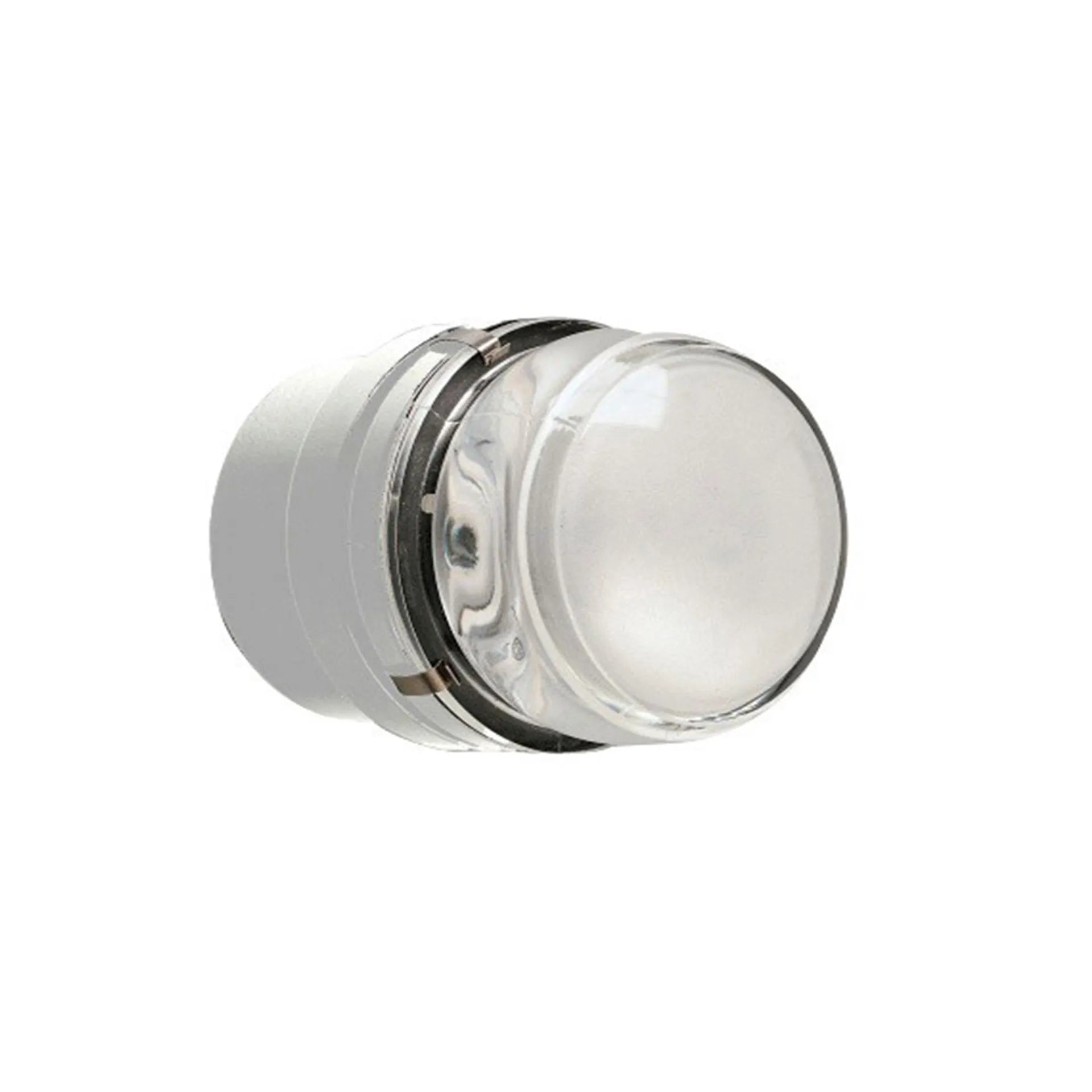
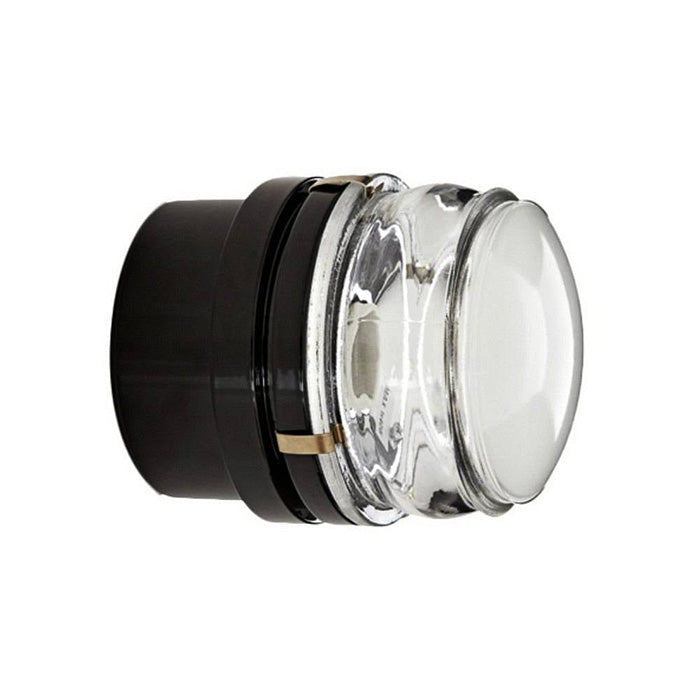
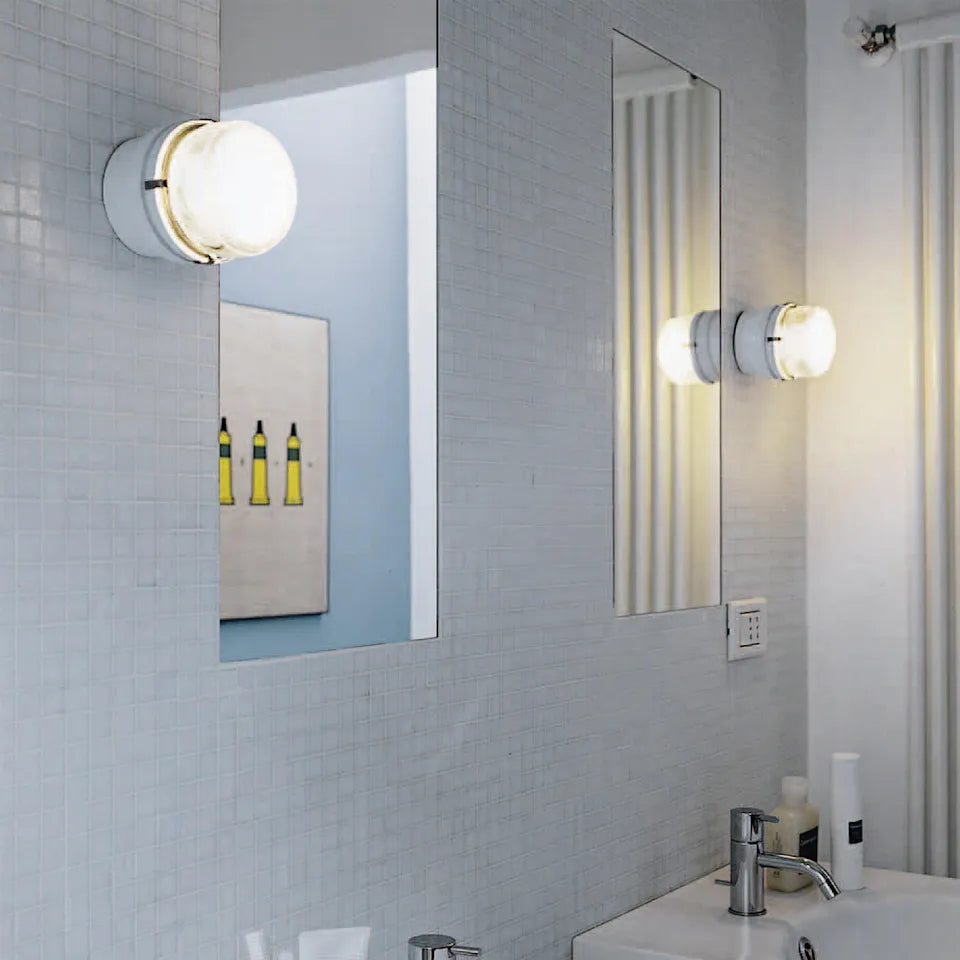
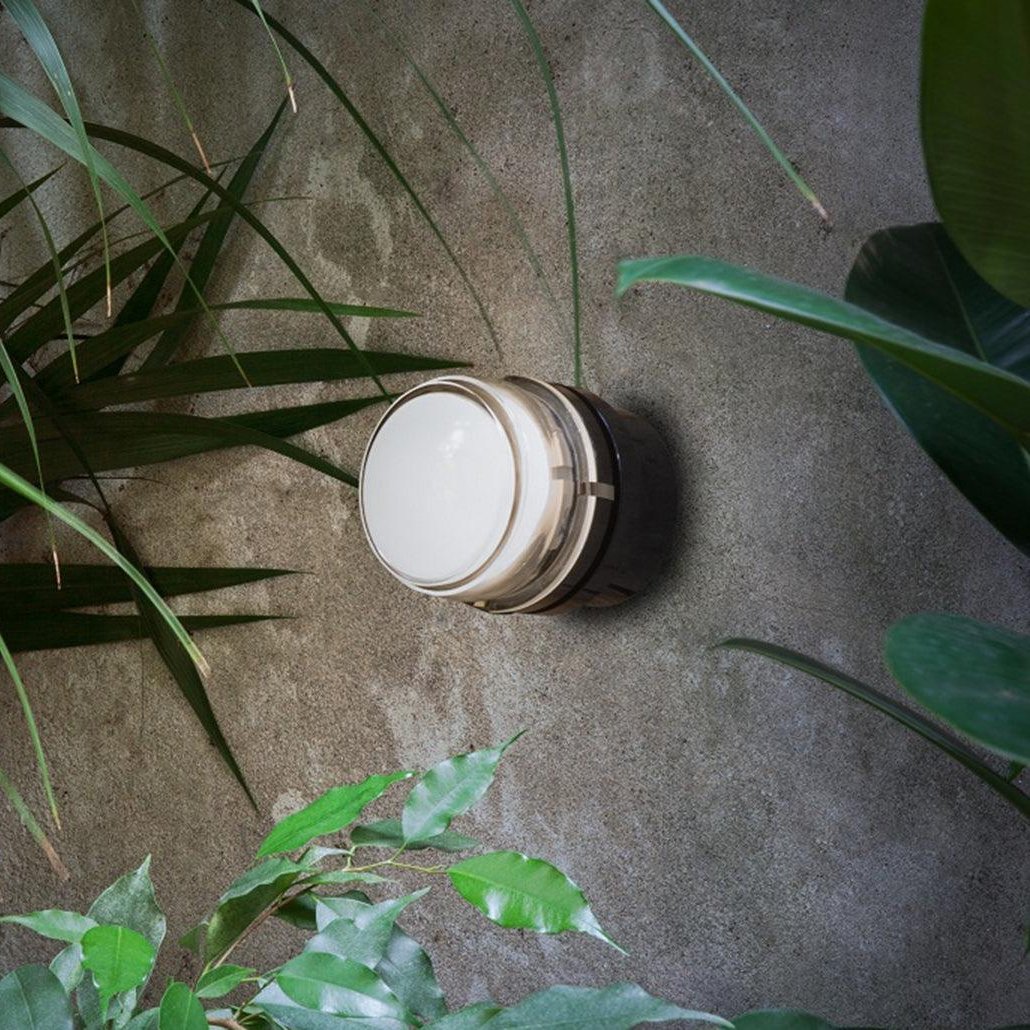
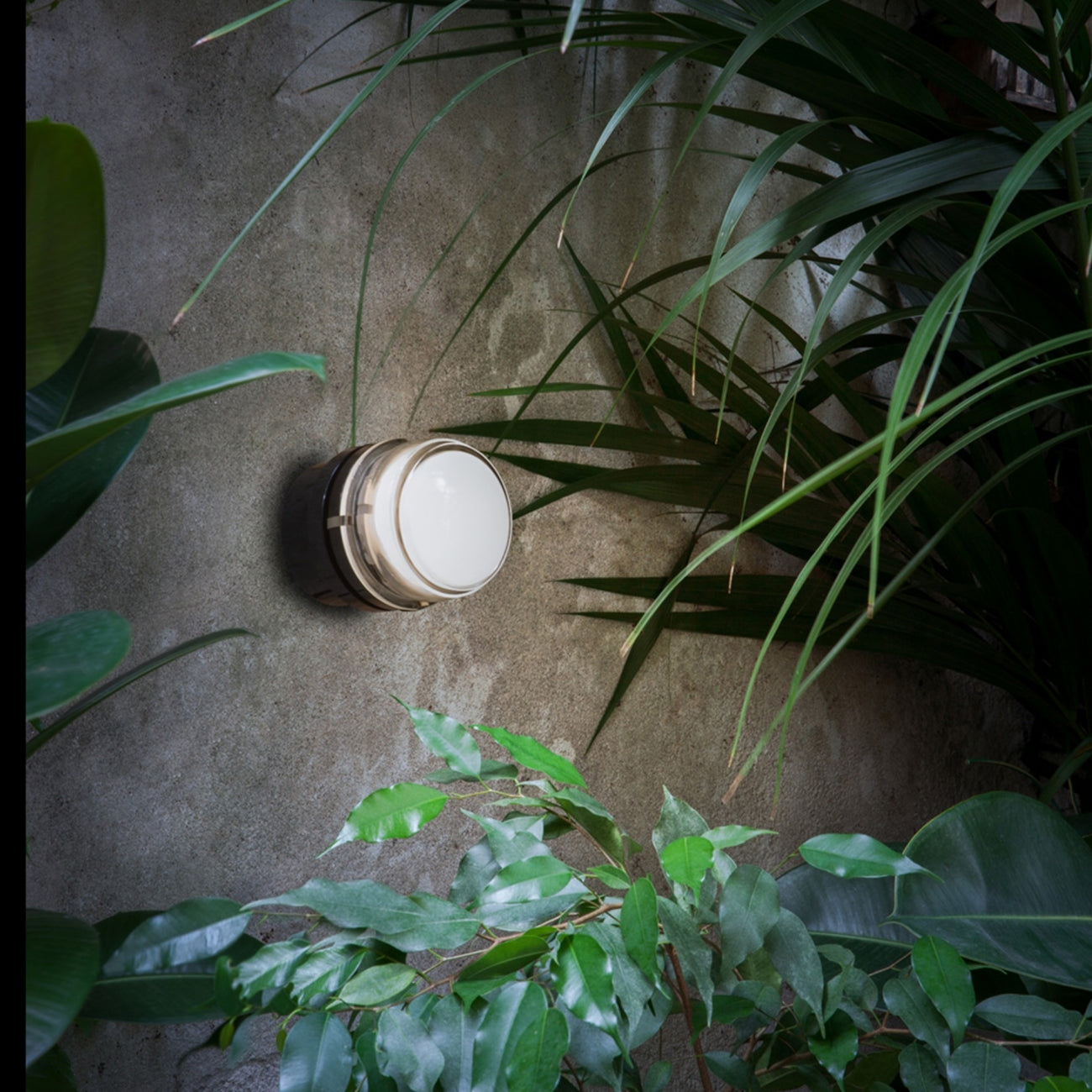
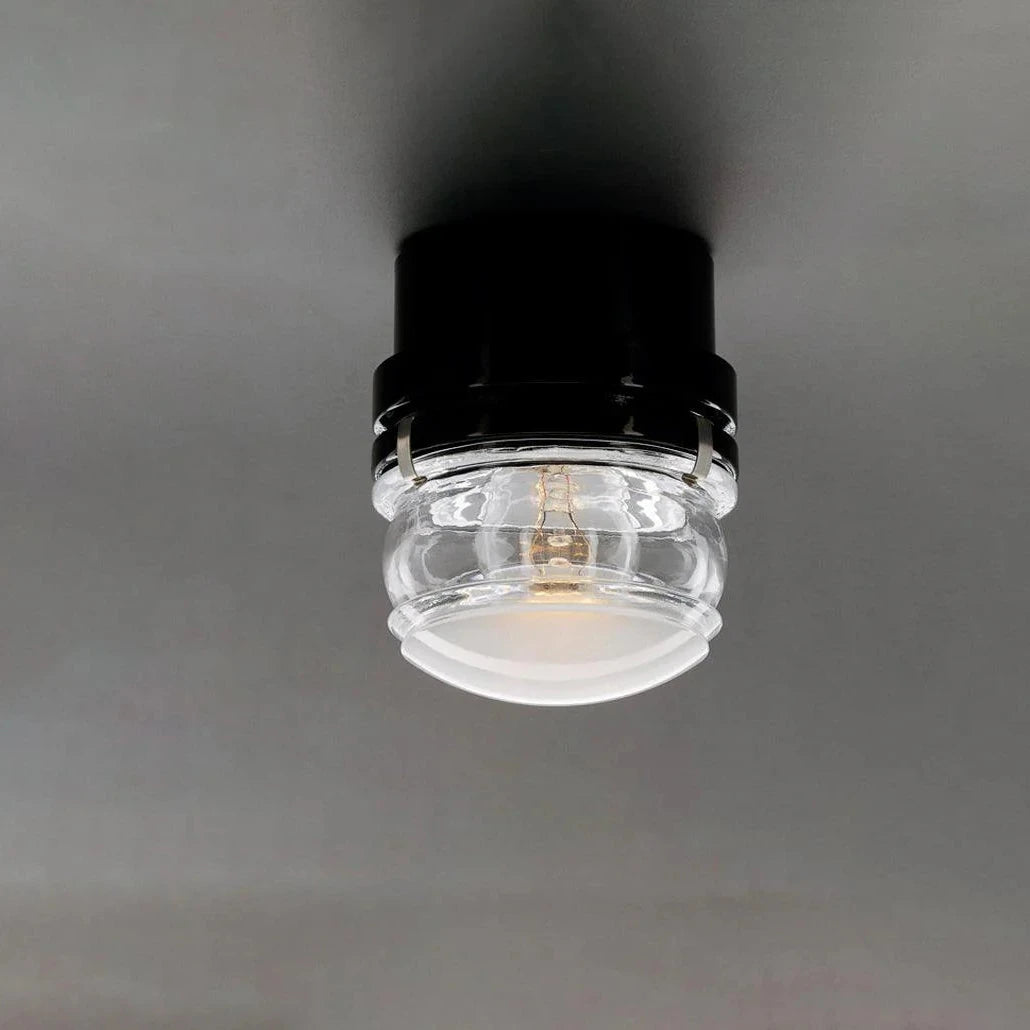
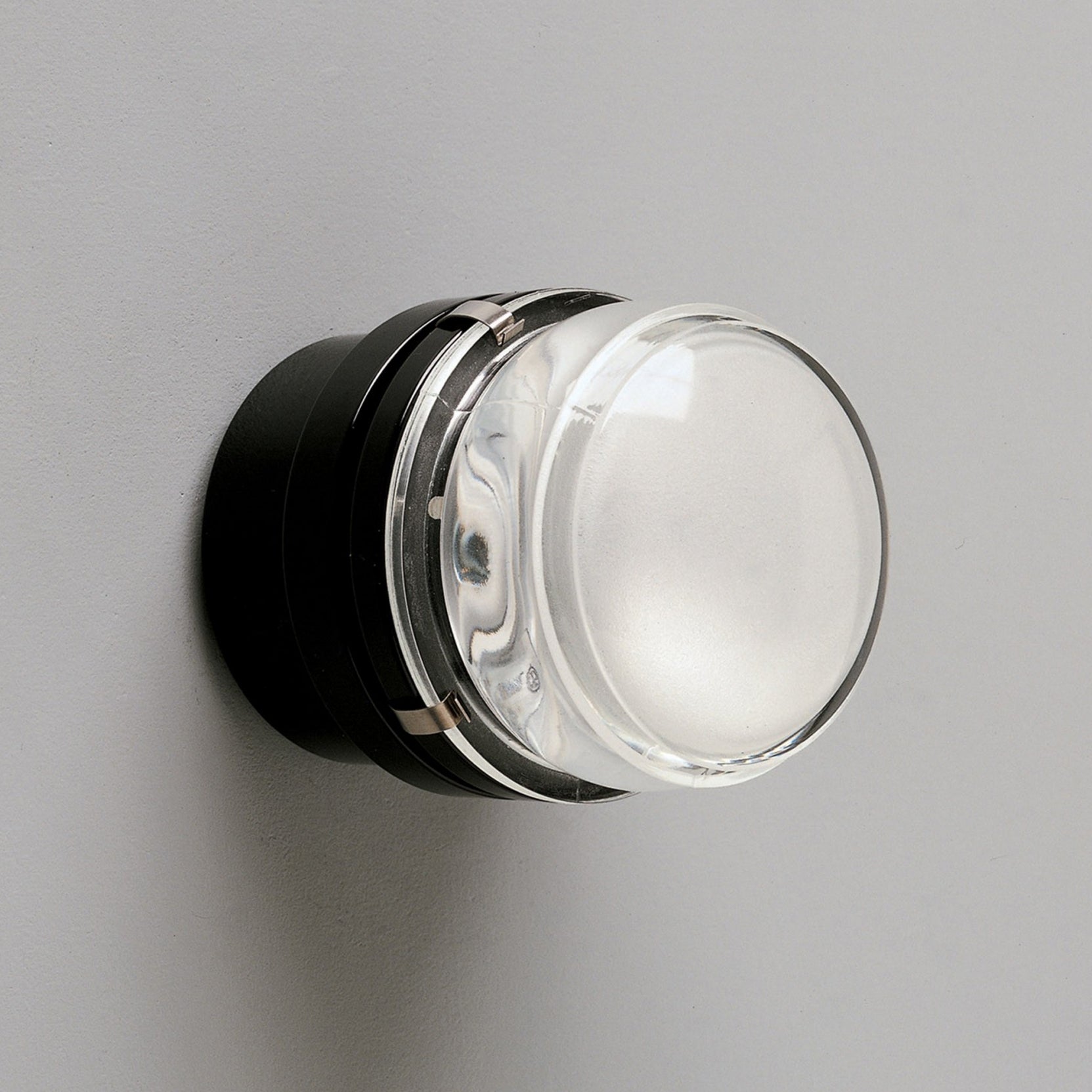
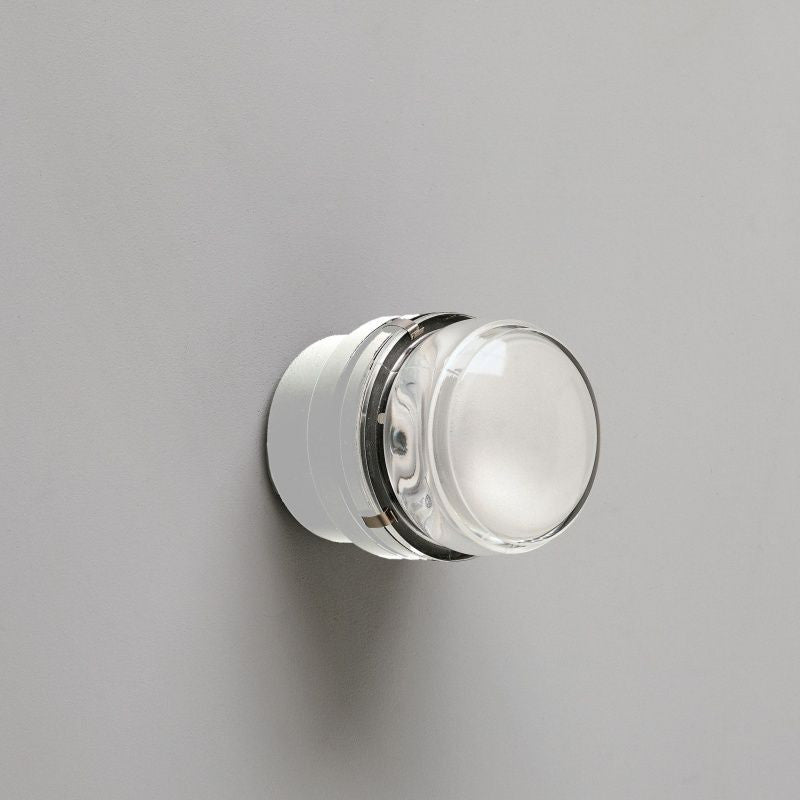
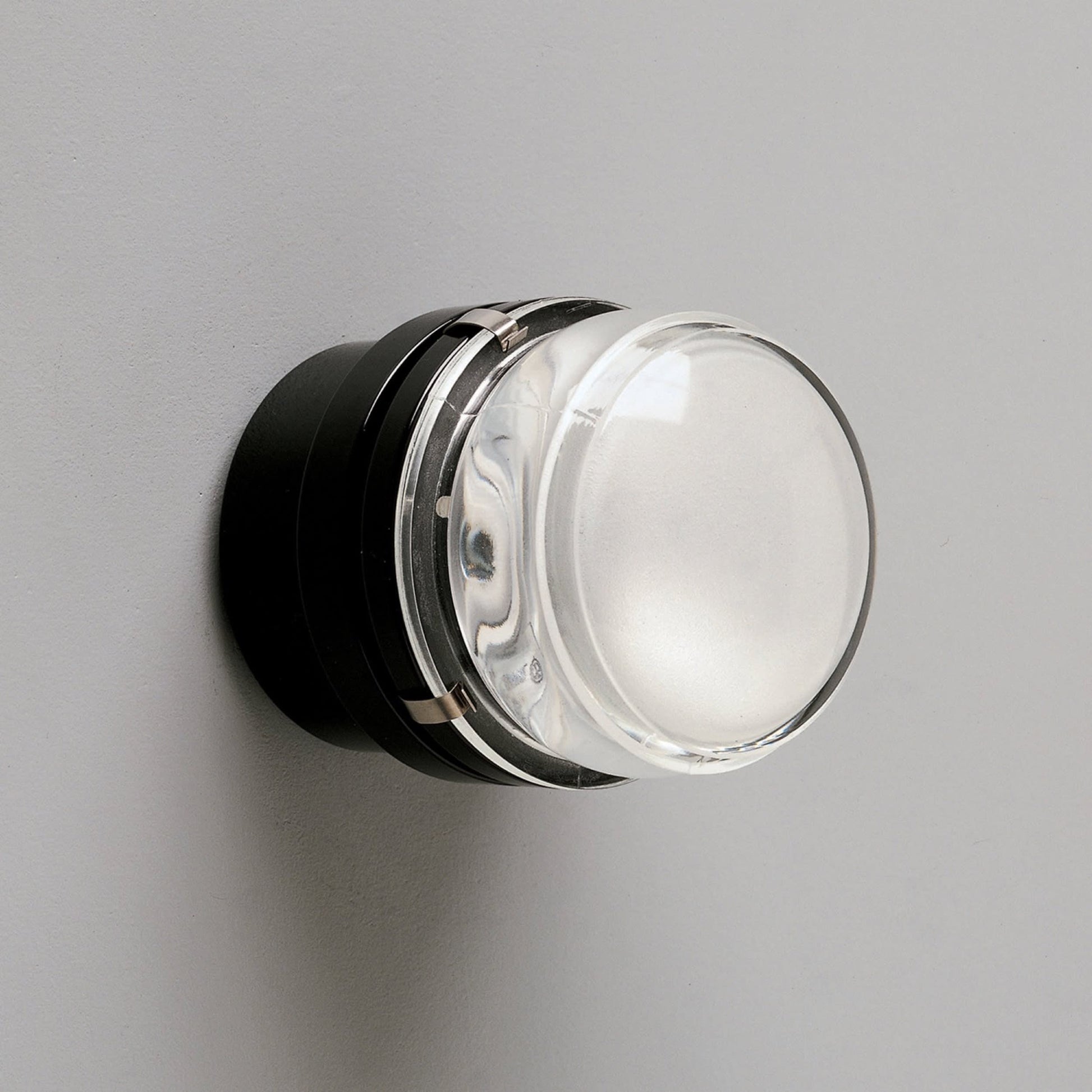
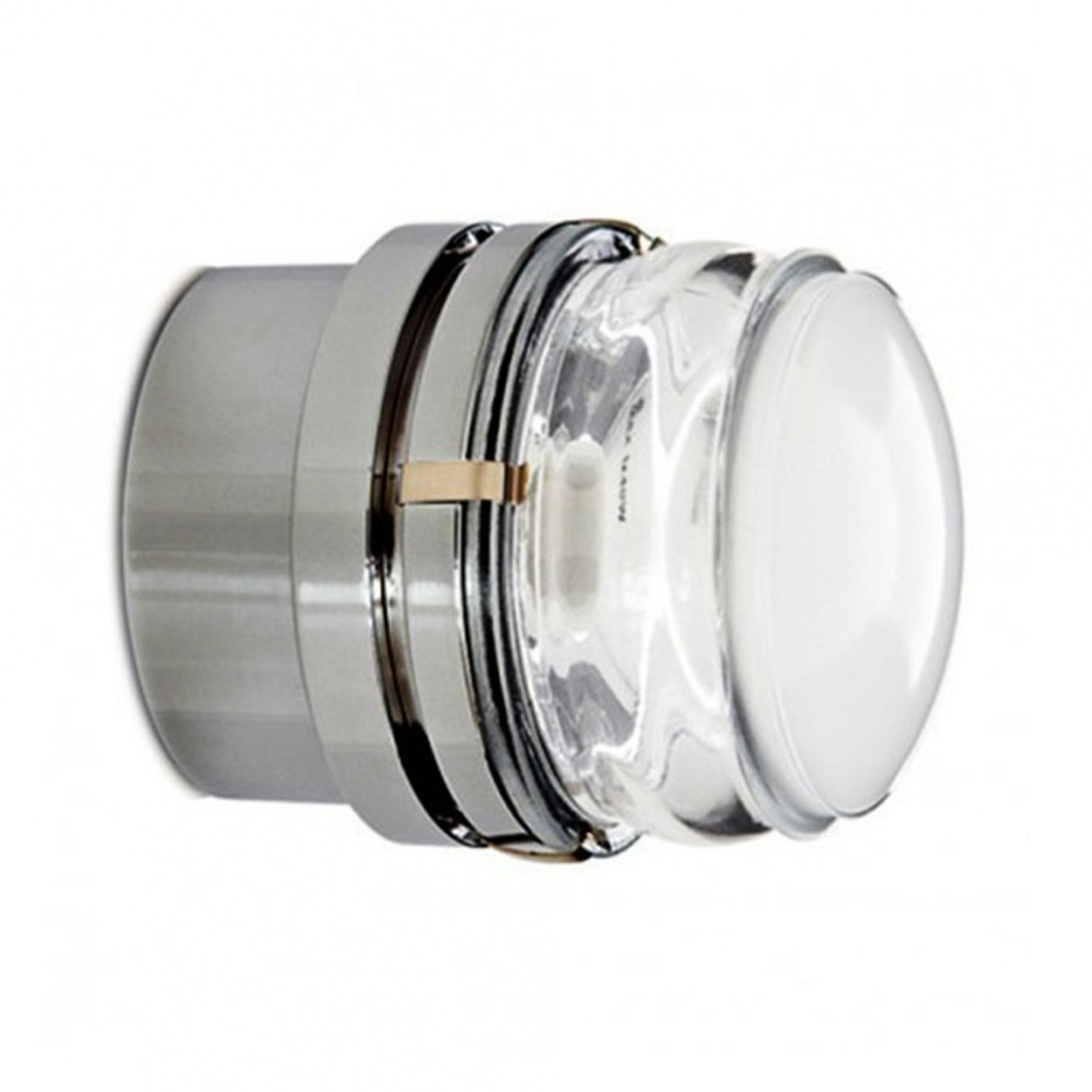
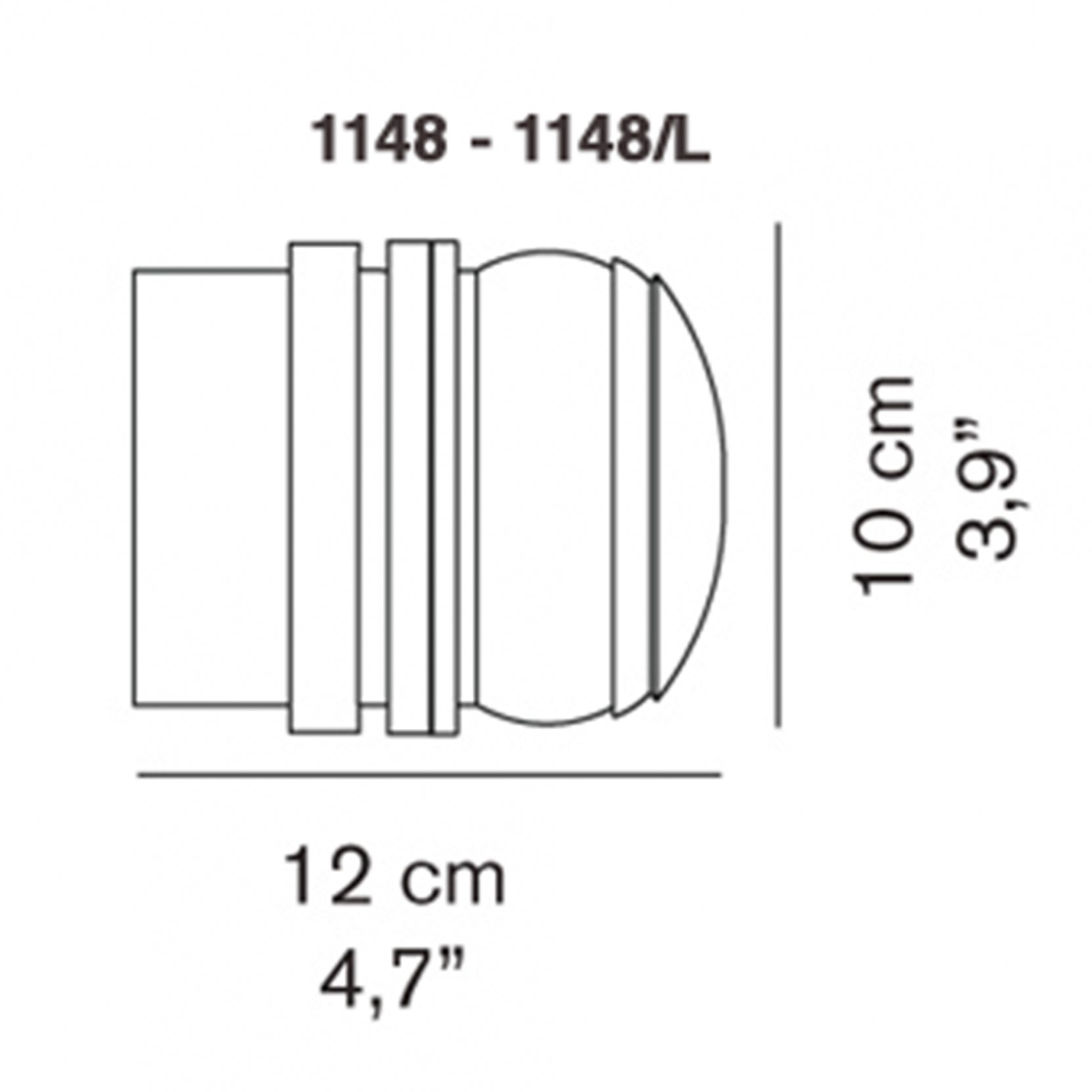
Oluce Fresnel Wall Light IP44 by Joe Colombo 1966
- Regular price
- £240.00
- Sale price
- £240.00
- Regular price
-
Special order or made to order items
Orders placed for items that are not in stock in our warehouse are advertised as "Delivery within XXX".
Upon purchase, orders are placed with our suppliers, which are then delivered to our warehouse whereby they are then shipped directly to you within 24 business hours.
The delivery time advertised is a generous timeframe, and most items are received within this period.
However, this not guaranteed as we rely on production schediules and supply chains and quite often internail customs.
Don't Panik - Shop with confidence
- 5 star feefo reviews
- Established 2001
- UK largest independant stockist
- UK customer support
- UK next working day delivery avaliable on ALL in stock items
- Secure payments
SKU:1148 white
Small but perfectly formed, the Fresnel light requires only a 10cm diameter space on a wall or ceiling. The lamp glass is shaped as a Fresnel lens which ensures the light emitted is singularly soft, deep and diffused.
The light's highly protective lacquered aluminium casing makes it suitable for both indoor and outdoors and particularly well-suited to damp environments. Joe Colombo designed the Fresnel light to be as unobtrusive as possible - a timeless and functional object which sits happily in any setting.
Made with a lacquered aluminium casing. Available in black, white and grey
E14: Light source: 1 x E14 max 40W (not included).
LED: Light source: 1 x max 4 W (LED) - 2700°K - 500lm - CRI >85 (included)
IP44 rated.
Size: Dia 10 cm, L 12 cm

Joe Colombo
Telling about Joe Colombo means telling the brief but intense parable of one of the greatest Italian designers, who died in 1971 at the young age of 41. It means telling about a life, as quick as lightning, of a man who strongly believed in the future and who gave us a very particular prefiguration of those fundamental 60s, when the future suddenly started to appear closer. Joe Colombo’s future was an anti-nostalgic future (he would not have recognised as ”future” the ’90s in which we live today), in which an intelligent technology would have helped every human activity, laying the foundations for completely new living models. At the time, Joe Colombo designed entire living cells. The first one was for Bayer, Visiona ’69, an integrated cell divided in ”functional stations”: the ”Night-Cell” block (bed+cupboards+bathroom), the ”Kitchen-Box” (kitchen+dining room), the ”Central-Living” (living room). These functional stations are articulated mapwise as well as sectionwise, just like the homes designed by Joe Colombo, where floors and ceilings go up and down, continuously accelerating and slowing down within the interior dynamism, where shelves hang from above and lights are deep-set in the floor. This is probably the best known vision of Joe Colombo’s future, which makes us smile today and talk about a science fiction utopia, but another one exists, one that has been subject to less analysis and which, unlike the former, proposes independent single elements, which condense functions and which are finished and ready to use.























